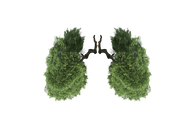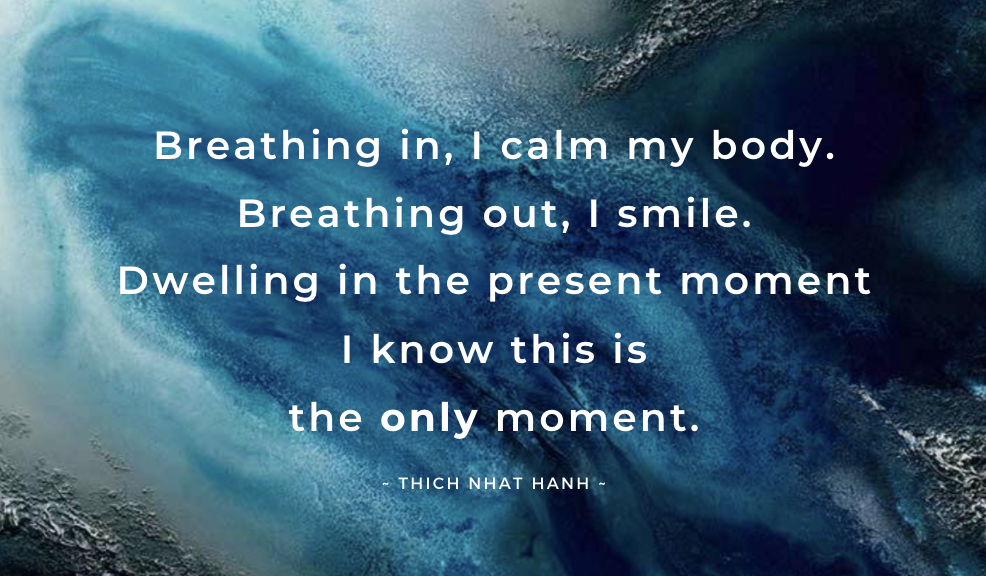Our breathing is intimately linked with our nervous system. Our nervous system has a powerful influence on all our other body systems including our hormones and immune system. Therefore how we breathe determines our health. Improper breathing is a common cause of illness.
are you breathing too much?Deep breathing is not the same as big breathing. Something seems to have been lost in translation when people think of them as the same. Big breathing is taking in bigger than necessary breaths. For optimal deep breathing we want the breath to be controlled and subtle. Signs you are over-breathing include: breathing through your mouth, feeling of breathlessness, fast heart rate, regular yawning or sighing, nasal congestion, dizziness, fatigue, restlessness, brain fog or concentration problems, anxiety, unrestful sleep, insomnia, digestive problems to name a few. Watch this video and subscribe below to find out more about optimal breathing.
|
The way we breathe influences functioning of airways, blood circulation and oxygen release to the cells. Common conditions including asthma, hay fever, snoring, sleep apnea and anxiety can be significantly helped by simply correcting the way you breathe.
|
How we can helpWe address all the pillars of breathing, including the biochemistry and mechanics. We develop personalised breath retraining programmes drawing on methods including Buteyko, yoga therapy and methods used in physiotherapy.
We offer individualised or small group coaching sessions primarily to help people recover from conditions such as asthma, anxiety, sleep disorders, hypertension, hyperventilation, hay fever, allergies and stress. We also help athletes with improving performance. |
Let's get started
Intake & Health Assessment:
The first step is an extensive intake process, which allows us to get to know each other, as well as gather information about your holistic health history. We will also complete a structural assessment, check vital signs, assess your breathing patterns, and discuss your health goals.
Intake and assessment: 90 minutes | $130 NZD (in person or online)
(International clients: we accept Paypal)
The first step is an extensive intake process, which allows us to get to know each other, as well as gather information about your holistic health history. We will also complete a structural assessment, check vital signs, assess your breathing patterns, and discuss your health goals.
Intake and assessment: 90 minutes | $130 NZD (in person or online)
(International clients: we accept Paypal)
Breathing to Heal Private Sessions:
We will then work together over an agreed period of time to create a customised practise for you. These sessions will take into consideration your needs, preferences and experiences in response to the tools we introduce. Homework and guided meditations may also be provided.
Each session will focus on addressing all levels of health with a focus on restoring functional breathing, and may also include corrective postures, mindfulness and meditation techniques where appropriate all tailored to your unique needs.
Private in person or online Breathing to Heal Session: 1 hour 15 minutes $130 NZD
Corrective breathing mini sessions: 45 minutes $90
(International clients: we accept Paypal)
We will then work together over an agreed period of time to create a customised practise for you. These sessions will take into consideration your needs, preferences and experiences in response to the tools we introduce. Homework and guided meditations may also be provided.
Each session will focus on addressing all levels of health with a focus on restoring functional breathing, and may also include corrective postures, mindfulness and meditation techniques where appropriate all tailored to your unique needs.
Private in person or online Breathing to Heal Session: 1 hour 15 minutes $130 NZD
Corrective breathing mini sessions: 45 minutes $90
(International clients: we accept Paypal)
|
|
locationsWe currently operate from Birkdale, Northcote, Kumeu and Ellerslie in Auckland. Breathing specialist consultations are also available online via Zoom and Skype.
|
breathing to heal from asthmaIt is well documented in research that a child or adult with asthma habitually breathes more air than a person without asthma. This can be recognised by the bad habits of mouth breathing, upper chest breathing, audible breathing and noticeable breathing at rest. The habit of over-breathing causes a disturbance of blood gases, as well as cooling and drying of the airways resulting in symptoms such as coughing, wheezing and breathlessness.
Learn about the role of correct breathing in improving asthma management. |
|
fibromyalgiaWhile faulty breathing doesn't directly cause fibromyalgia, it can play a significant role in the development and persistence of chronic pain conditions.
As the research shows, and as we have experienced with our clients, with the right breathing habits, the worst symptoms of fibromyalgia can be alleviated or even eliminated. Correcting dysfunctional breathing can help to reduce pain, improve sleep, and increase overall quality of life for people with fibromyalgia. |
snoring, sleep apnea, insomniaThe way you breathe during the day can have a significant impact on the quality of your sleep. If you tend to breathe fast and irregularly, it may contribute to poor sleep, leaving you feeling stressed, irritable, and unable to think clearly. Even top athletes can experience the negative effects of sleep deprivation on factors like speed and strength.
Whether you're seeking a performance-enhancing edge or simply want to improve your ability to fall asleep and stay asleep, it's time to address your sleep problems. We offer personalised therapy and treatment plans to help you achieve restful and rejuvenating sleep. We can even help you to stop snoring! Contact us today to learn more and start your journey towards better sleep. |
free guided meditationSign up to our mailing list and receive a link to your free 20-minute guided corrective breathing relaxation and begin your Breathing to Heal journey today.
|
|
|
“I offer you peace. I offer you love. I offer you friendship.
I see your beauty. I hear your need. I feel your feelings. My wisdom flows from the Highest Source. I salute that Source in you. Let us work together for unity and love.” – Mahatma Gandhi – |
breathing to heal &
YOGA WELLNESS CLINIC
Copyright | Yoga Wellness Clinic | Breathing to Heal | All Rights Reserved
Birkenhead and Birkdale, North Shore, Auckland, New Zealand | International Yoga Therapy
Birkenhead and Birkdale, North Shore, Auckland, New Zealand | International Yoga Therapy





